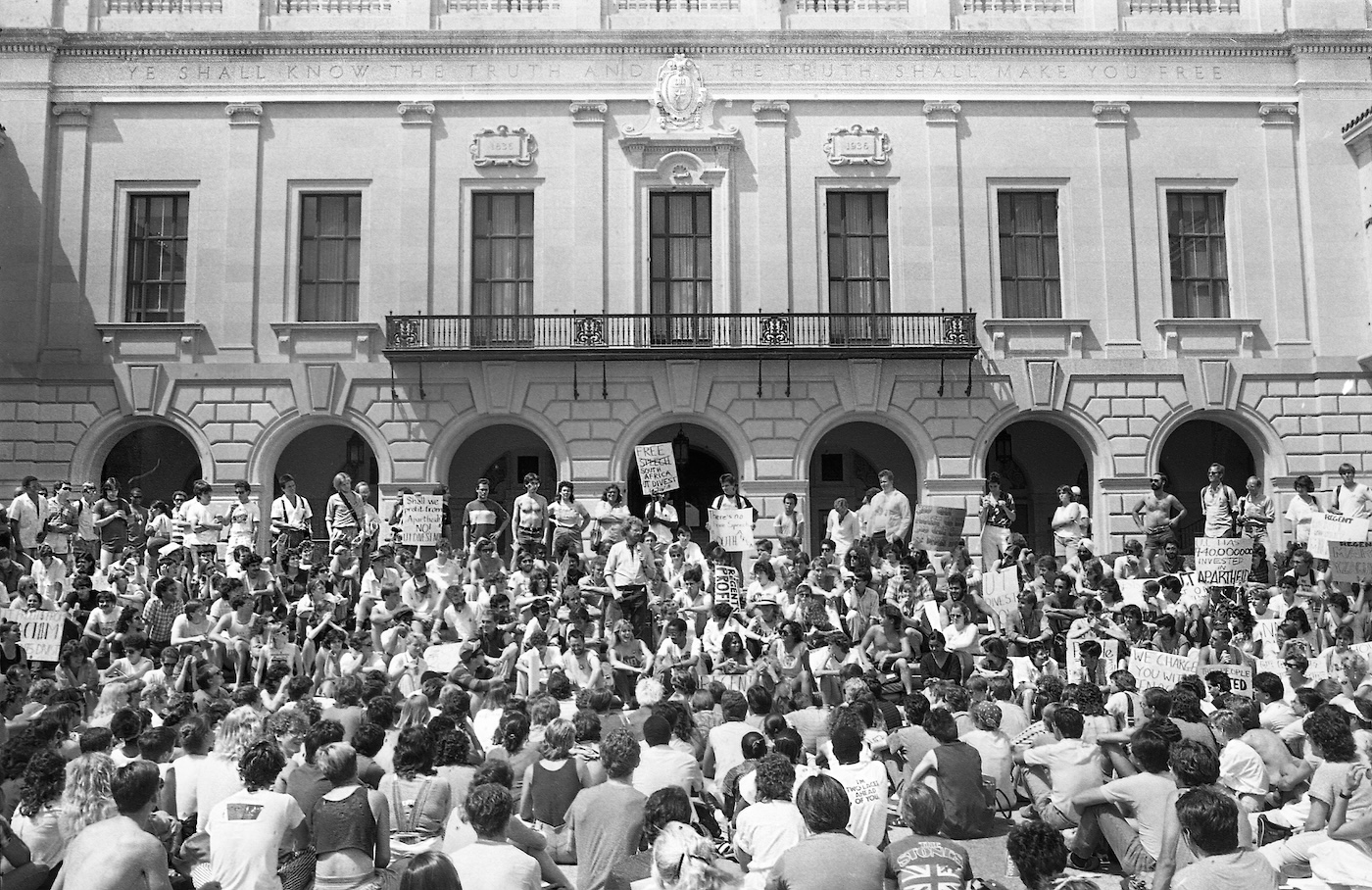Not long after arriving on campus as a freshman in 1981, economics and government major Darrick Eugene became aware of the apartheid system in South Africa. He knew right away he wanted to do something about it.
“I was introduced to the term divestment,” said Eugene in a 2013 interview with KUT radio. “…As we were educated about that, we said, ‘This is something we could do. This is something we could petition the university to do as a way of showing solidarity with the oppressed people of South Africa.’”
At the time, South Africa’s White population, which made up 16% of the country’s total population, owned 87% of the land. The country’s 20 million non-White residents, meanwhile, were relegated to second-class citizenship and subject to formal and informal discrimination and exploitation.
While UT Austin did not have any direct investments in South Africa, it had approximately $300 million invested in companies who did business in the country at the time. Throughout the early- and mid-1980s, students across the U.S. protested apartheid and called for their institutions to divest.
1984 marked a turning point in the anti-apartheid movement at UT Austin. In March, students belonging to the campus Steve Biko Committee held a rally on the West Mall commemorating the 1960 Sharpeville Massacre, in which 69 Black demonstrators were killed by White South African police. The committee was named for the leader of a South African consciousness movement who was arrested and killed in 1978. Students participating in the rally called for divestment and received support from such people as John Warfield, then-director of Afro-American Studies. “We want to change the yardstick by which the university makes decisions on its divestment portfolio,” Warfield told the crowd.
In April, the Students’ Association proposed a resolution asking the University Council to issue a resolution to the UT System Board of Regents demanding that they divest from companies that did business in South Africa. Issues addressed in the resolution included the approximately $300 million investment by the University in companies with ties to business in South Africa, the suppression of organized groups who peacefully opposed the system, and the benefits the University received from the exploitation of human labor in South Africa.
The resolution passed by a landslide, but wasn’t enough to persuade the Board of Regents to divest from companies doing business in South Africa. The student activists’ efforts may not have been in vain, however.
William Cunningham, who served as president of UT Austin from 1985-1992, came in retrospect to see the national divestment movement, of which UT was a part, as contributing to a broader climate that encouraged divestment. “Over time,” said Cunningham to KUT, “…the corporations that we invested in had begun to pull out [of South Africa].”
The movement was also a political education for the students involved, and a means of finding their place at UT Austin. “It could be a very alienating experience being here as an African American student,” says Eugene, who would go on to earn his JD at University of Texas Law School and now practices law in Austin, “But I believe what we experienced here as an effort to resist or push against authority was a method of growth…something we had to go through in order to grow and develop.”
In the interview, Eugene mentions that Cunningham always gave him and his fellow students an audience, assuring that, whatever did or did not happen in terms of policy change, the students’ voices were heard. Both Eugene and Cunningham acknowledge that the campaign illustrates the transformative power of student movements at universities. “It was a defining moment of my life,” Eugene says. “We’re all different because of it,” adds Cunningham.
